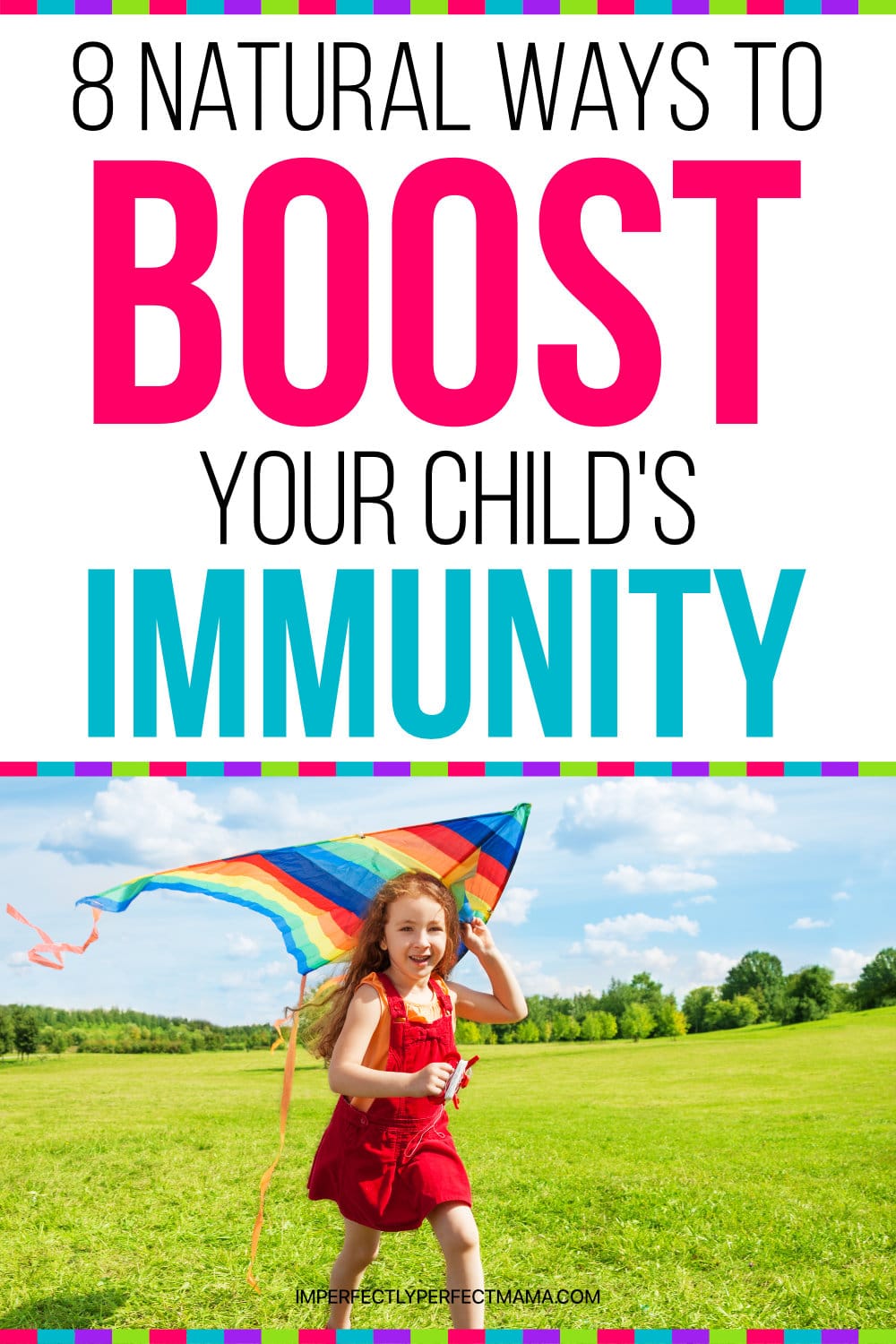We are living in greuling times. We are smack dab in the middle of a pandemic that has worn our patience thin.

As we poke around for ways to shelter from the Coronavirus pandemic, we can’t help but fret about our kids.
Children are born with immature immune systems, as fragile as lilies. With time, however, their immune systems toughen up.
This happens as they get exposed to germs, viruses, and other organisms.
Healthy food is the foundation of a strong immune system.
Kids with strong immune systems are better placed to fight off diseases and infections.
Thankfully, there are natural ways of boosting your child’s immunity. Read on to find them out.
1. Probiotics
The human body is full of good and bad bacteria.
Probiotics are the good live bacteria found in the gut.
They help the body to maintain a healthy community of microorganisms. They also help in food digestion and in warding off infections.
Probiotics enhance a healthy balance between the good and bad bacteria in the gut.
When the body gets an infection, they swing into action and neutralize the bad bacteria.
Like adults, kids need their daily portion of probiotics to maintain a healthy gut and keep illnesses at bay.
They can get probiotics from fermented foods such as yogurt, kefir, sauerkraut, kimchi, pickles among others.
2. Foods Rich in Zinc
Zinc is an essential nutrient that supports childhood development and helps fortify the immune system.
It also helps the body in wound healing by enabling the production of proteins and DNA. Low levels of zinc predispose children to diseases and infections.
In fact, studies show that Zinc is useful in reducing the duration and severity of cold symptoms.
Zinc is abundant in protein-based food such as meat, dairy, eggs, seafood, legumes, whole grains, nuts, and seeds.
3. Fruits and Vegetables
Fruits and vegetables are chockfull of minerals, vitamins, and fiber.
They are also rich in antioxidants which help protect body cells from damage and disease. The amount of veggies and fruits each child needs per day depends on their age.
2-3-year-olds for instance need 1 cup of fruit and 1 cup of veggies daily.
On the other hand, 4-8-year-olds need 1.5 cups of fruit and 1.5 cups of veggies daily.
However, we all know that chowing down veggies is not your ordinary child’s cup of tea. Your kids may need a little coaxing. You can for instance throw in the veggies in your child’s favorite food, or whip them up in a delicious smoothie.
4. Sunshine – Vitamin D
Vitamin D is crucial for healthy bone growth and development in children. Besides that, vitamin D helps in boosting a strong immune system.
It helps the body ward off diseases, especially viral respiratory infections.
Your best bet at having your kids rake in sufficient amounts of Vitamin D is by having them soak some sunshine.
The human body produces Vitamin D after being exposed to the sun.
If you live in areas with minimal exposure to the sun, talk to your pediatrician about getting a Vitamin D supplement for your child.
There are however a few foods that contain measly amounts of Vitamin D which is not sufficient for the human body. Such foods include mushrooms, eggs, salmon, whole milk, and fortified foods.
5. Nuts and Seeds
Nuts and seeds are power foods.
They have antioxidants, vitamins, minerals, protein, and fiber.
They also contain the almighty Omega-3 fatty acids that enable the body to fight illnesses.
Examples of nuts include:
- Walnuts
- Cashew nuts
- Almonds
- Hazelnuts
- Macadamia
- Pecans
Examples of Seeds:
- Chia seeds
- Pumpkin seeds
- Sesame seeds
- Sunflower seeds
- Flax seeds
Getting your kids to enjoy nuts and seeds may also call for you to don your creative cap.
You can for instance add them into your child’s favorite smoothie, mix them with dried fruit or sprinkle them on their breakfast cereals.
However, remember that kids under four years are susceptible to choking and should therefore not be offered whole nuts.
6. Catching Enough Z’s
There’s a lot at stake when your child doesn’t catch enough z’s.
Apart from being grumpy and throwing a trail of hissy fits, their health also takes a beating.
Insufficient sleep suppresses the immune system, predisposing children to illnesses and infections.
It is therefore important to tether your kids to a regular sleep schedule in a bid to boost their immunity.
According to the National Sleep Foundation, here is the amount of sleep babies and children need, according to their ages:
- 0-3 months old need 14-17 hours
- 4-11 months old need 12-15 hours
- 1-2 years old need 11-14 hours
- 3-5 years old need 10-13 hours
- 6-13 years old need 9-11 hours
7. Breast Feeding
There are several understandable reasons why some moms cannot breastfeed their babies. However, if you can, we are here to encourage you to nurse your little one.
The American Academy of Pediatrics (AAP) recommends that babies should be exclusively breastfed for the first six months.
This is because breastmilk is as precious as gold. Apart from providing all the nutrients that a growing baby needs, it also oozes with antibodies that help your baby fight off diseases.
Here are some of the ailments that breastmilk helps snuff out:
- Ear infections
- Allergies
- Diarrhea
- Pneumonia
- Meningitis
- Diabetes
- Sudden Infant Death Syndrome (SIDS)
8. Exercise
Children need physical activity in order to build a strong heart, healthy bones and muscles, healthy lungs, and a strong immune system.
Thankfully, kids squeeze in the required amount of physical exercise as they play and go about their daily activities.
However, with the current lockdowns and other restrictive measures due to the Covid 19 pandemic, parents may need to urge their little ones to move a bit more.
One brilliant way of helping your kids move is by exercising with them. You can plug into some home workouts and have your kids join in.
Final Thoughts
Most kids will battle 7-8 bouts of cold each year. You can however yank your child out of this rut by fortifying their immune system.
Ensure that they feed on healthy immune-boosting foods, get enough sunshine, and exercise.
Processed foods like cakes, cookies, crisps, soda, juices should only be offered occasionally as treats.
Jean Anthelme Brillat put it accurately in his famous quote “Tell me what you eat and I will tell you who you are’’.
We trust that the tips we have shared will help you raise healthy kids.




Leave a Reply